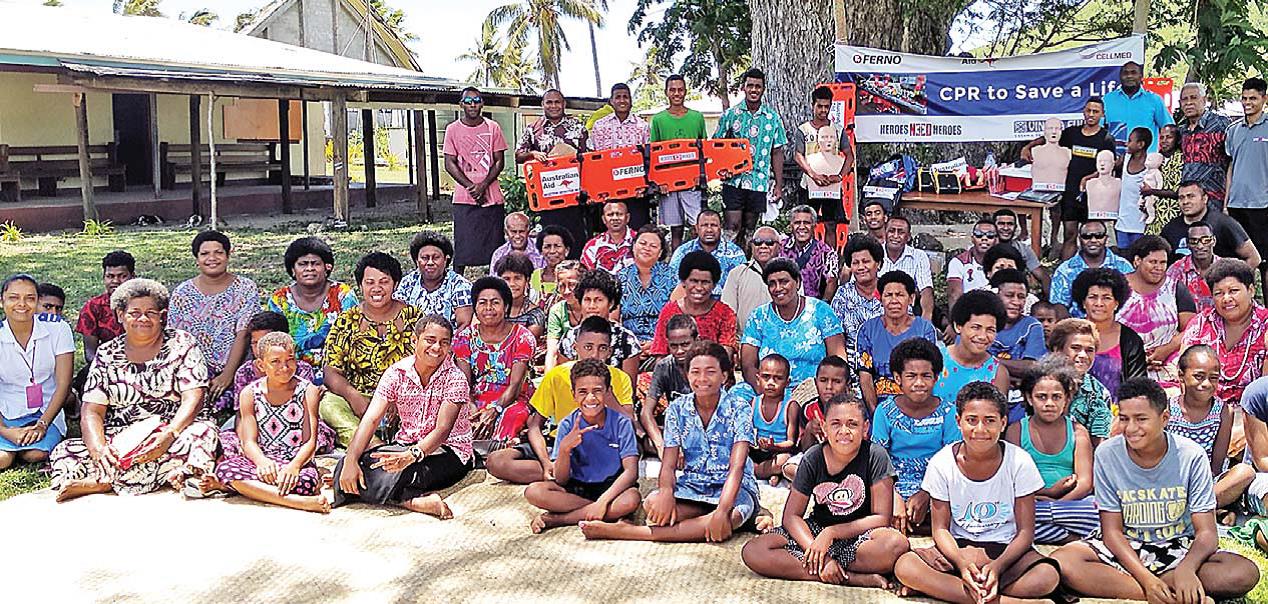THE tradition and culture of the iTaukei people has always been of interest to many people who visit Fiji for the first time.
For many years, visitors and tourists have been left to wonder the amazing cultural experiences experienced in the traditional iTaukei setting and many have always dug deeper in their willingness to understand the deeper meaning behind these amazing traditional experiences.
An important aspect of iTaukei living is solesolevaki or communal living.
Another important aspect of the iTaukei people are their languages.
The 14 provinces in Fiji speak their own dialect and many of them are proud of their dialect as it proudly represents who they are.
Solesolevaki played an important role in the lives of the iTaukei people particularly for those that live in iTaukei villages.
In the iTaukei community, this traditional way of living is always cherished as they are ancestral legacies passed down from generation to generation and have always been practised by the iTaukei people in their everyday living. Although life is in its western era, iTaukei people have always practised their rich and unique sense of identity everywhere they are in and this identity has made headlines all over the world.
The culture of solesolevaki does not only bring people together.
It also allows them to integrate and discuss important issues pertaining to their lives in the village.
Communal living or solesolevaki in an iTaukei village is what life is.
It was practised by their forefathers and is still very much alive in many iTaukei villages today.
The village headman (Turaga ni koro) plays a vital role in ensuring villagers adhere to village calls when a meeting is called and that an important message may need to be relayed to villagers.
When he (village headman) calls for a village gathering by blowing the conch shell, it is an important meeting where every villager who understands his/her traditional role and obligation in society understands the need to attend the meeting so they can be relayed the important news of what they need to do.
Solesolevaki allows the iTaukei people to re-establish and maintain their traditional obligations within their settings. It allows them to work together, brings together a sense of respect and togetherness and also allow them to maintain their unique cultural identity.
Situated on a beautiful and remote island is Kese on Naviti, Yasawa.
It is one of the many villages in Fiji that remains proud of its unique iTaukei identity and villagers still practise today what their forefathers have always done from the past.
A visitor to this village would be amazed at the richness and uniqueness of the traditional cultural protocol that is still practised in the village today.
Earlier this week, the villagers attended to a medical training conducted by Australia based charity organisation Heroes Need Heroes on the importance of understanding basic rescue method in conjunction with Vinaka Fiji, a charitable arm of South Sea Cruises.
The village headman only had to make the call once for every villager to be present at the training.
The villagers’ willingness to attend the training together showed their pride in working together and in believing that they could achieve everything together as a unit.
All throughout the training, facilitator Mike Fawcett was amazed at the villagers’ resilience and effort to understand more from the training.
After the training, each and every villager gathered around the village green to enjoy lunch that was prepared by the women.
It depicted togetherness, respect and love as they all work together to achieve a common goal and at the same time maintain their sense of culture and pride.
All throughout the training, they shared every piece of information they have learnt as some of the villagers understand better only in the Yasawa dialect.
In Parliament last week, Opposition MP Lenora Qereqeretabua highlighted that as a member of the indigenous people of this country, she is conscious of the fact that only 500, 000 of us are on this planet, out of the 7.7billion.
“Our language is unique to us, as are our indigenous traditions. It is only natural that when there are so few of you, the urge to preserve what can be lost is keenly felt.
“It is not racist therefore to want to preserve my language and my traditions. It is not racist to want to ensure that the native traditional lands and fisheries of the first people of Fiji are protected.
“This is the people’s house. How is it that we, the people, cannot use our own languages here? These are the languages we learned at birth. These are the languages in which we express our most intimate feelings. Why should this House only be a place for people who can speak good English?
“How can we talk about preserving our unique languages – our many Fijian dialects, our special Fiji Hindi – if we cannot speak those languages here? “
Ms Qereqeretabua said the parliament of New Zealand made Tereo Maori an official language in 1985.
MPs in New Zealand can address the house in Tereo with the use of an interpreter, adding that if Fiji could have translators in our courts, why can not we have them in Parliament.
Eventually we could move to simultaneous translation with trained translators, she said.
“This is what happens elsewhere. This is the 21st century. We have technology that can record what we say and how we vote. So it is not hard to have simultaneous translation. Good, high quality translators would not just be useful in Parliament. They would have skills we could use in many other settings where dialogue
and consultation are required.”
She added that the use of language is not about practicalities, it is about being willing to do it and is about our unity, our dignity as Fijians of all races, and our pride in our country and its culture.




